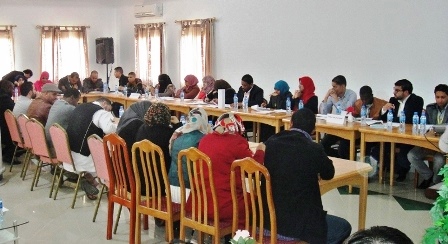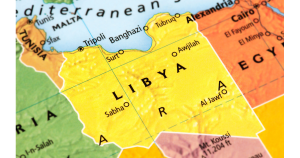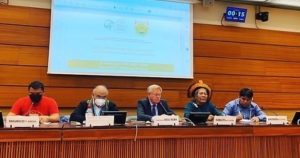Houn, Libya, 22-23 February 2014
On 22-23 February 2014, the Libyan Youth Union (LYU) organised a Transitional Justice Outreach Initiative in Houn, the capital of the Jufra district, located in the center of Libya. Sixty activists from Houn and the surrounding area, Tripoli, Sirte and Tobruk participated in this third Youth Day event. Approximately 30% of the participants were women.
No Peace Without Justice (NPWJ) supported the initiative in the framework of its Transitional Justice Program in Libya, which aims to empower local civil society on transitional justice issues. The two-day event held in Houn was part of the Youth Day Program on Transitional Justice, which includes the organisation of several events across Libya. LYU and NPWJ organised a first Youth Day event in Tripoli in March 2013, while a second Youth Day was held in December in the city of Tobruk. The aim of the Youth Day Program is to engage Libya’s youth in the transitional justice process by raising awareness about different experiences of transitional justice around the world and encouraging young Libyans across the country to participate and support their country’s transition to democracy, accountability and the rule of law.
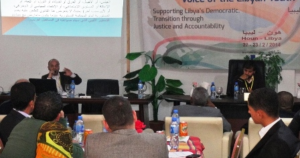
The first day was dedicated to introducing participants to key transitional concepts and mechanisms. Speakers from Libya highlighted the importance of the Transitional Justice Law approved in December 2013 and presented the mechanism of implementing and constitutionalising the document, which can be considered a tool to support national reconciliation. Examples of transitional justice experiences in other countries were also given, in order to emphasise the importance of such processes in democratic transition and to understand what lessons can be learnt and applied to Libya. The participants shared their opinions and engaged in productive and vibrant discussions on various aspects of Transitional Justice.
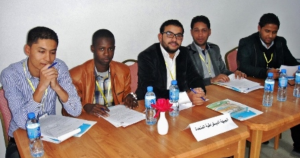
The second day was entirely dedicated to a role-play exercise that aimed at encouraging participants to consider different points of view in a post-conflict society and how these reflect on the understanding, perception and implementation of transitional justice mechanisms. Participants divided into groups representing different stakeholders in a fictional post-conflict country and discussed and decided upon a transitional justice strategy to which all parties could agree and which could be implemented in practice. This exercise allowed the participants to consider both the challenges and benefits of transitional justice. It also demonstrated the important role they, as young activists, can play in creating the conditions for accountability, redress and reconciliation to be achieved in Libya. The participants expressed a great interest in the role-play and responded very effectively.
At the end of the Youth Day, participants stressed the necessity to organise other similar events to discuss these issues further.
NPWJ in Libya
NPWJ has been working on the Libyan transition since early 2011, in the framework of its project to support Libya’s democratic transition through justice and accountability. As the country embarks on legislative reforms, the Libyan authorities can break with the legacy of impunity and abuses that typified Gaddafi’s rule with a new respect for the rule of law and a commitment to restoring justice and dignity to victims. Doing so requires not only the investigation and prosecution of the crimes and violence perpetrated during the revolution, but also efforts to confront a history of oppression and human rights abuses that dates back decades under the rule of the former regime.
For further information on the activities of NPWJ in Libya please contact Stefano Moschini, Libya Program Coordinator, at smoschini@npwj.org or +218917450375.

